Tuesday, March 2
| 10:00 AM-12:00 PM | "The Composer's Toolbox," Solveig Holmquist [Solveig Holmquist], ZOOM 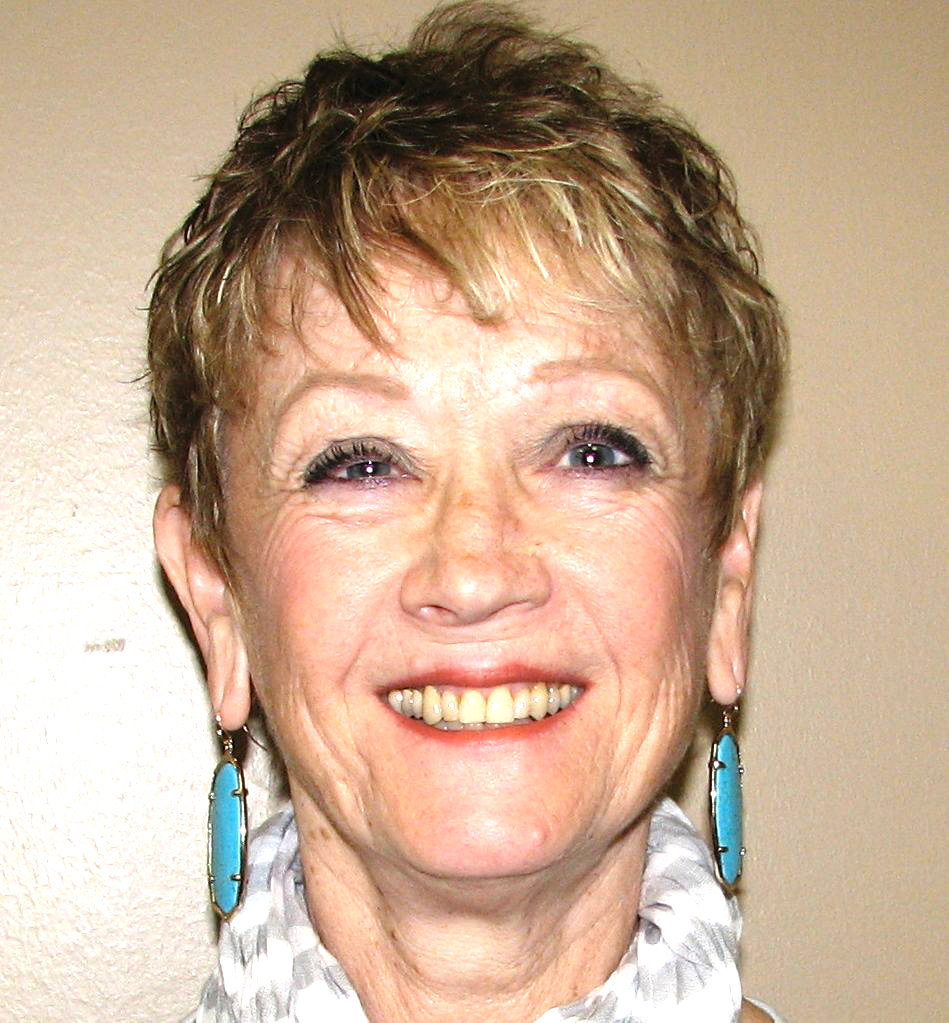 A November 15, 2019 Art presentation to ICL by Lynne Wintermute was the inspiration for this presentation, which examines the essential principles and elements that a composer considers as she/he begins to notate her/his creative inspiration. Rhythm, Balance, Line, Form, Color, Texture: all of these terms are used to analyze a painting -- but they are also all needed to describe a musical composition! Now, before you call your dentist to schedule a root canal in preference to attending this seemingly dry session, please consider that the piece we will be examining in detail is "Bolero", by French composer Maurice Ravel (1875-1937). A November 15, 2019 Art presentation to ICL by Lynne Wintermute was the inspiration for this presentation, which examines the essential principles and elements that a composer considers as she/he begins to notate her/his creative inspiration. Rhythm, Balance, Line, Form, Color, Texture: all of these terms are used to analyze a painting -- but they are also all needed to describe a musical composition! Now, before you call your dentist to schedule a root canal in preference to attending this seemingly dry session, please consider that the piece we will be examining in detail is "Bolero", by French composer Maurice Ravel (1875-1937).Solveig Holmquist majored in voice and organ at St. Olaf College in Minnesota, singing with the renowned St. Olaf Choir. She holds a Master's in Music Education from Western Oregon University and a DMA in Music Education and Choral Conducting from the University of Oregon. She has been an ICL member since 2012 and she currently serves on the Curriculum Committee. |
Tuesday, March 9
| 10:00 AM-12:00 PM | "Long Story Short, Cascadia is 10,000!," Paul Baxter [Solveig Holmquist], ZOOM  Cascadia Cave is an incredible archaeological site located on private timber land just east of Cascadia, Oregon, on the South Santiam River. Well kn own for its large display of rock art, unique in the Willamette Valley, it has also been shown to be one of the oldest occupations in Western Oregon. Recently the acquisition of seven new radiocarbon dates has shown it to be millennia older than originally thought, and in association with other intensive analyses, has helped us understand much more about its place in the prehistory of Oregon. This talk will discuss the history of the Cascadia Cave, with this present study based on the original archaeological excavations in 1964 and subsequent work in 1988. In short, the Cascadia Cave study reveals a millennia long adaptation which simply no longer worked as climate change shifted the resources of a bountiful uplands to the valley floor. Established there, the hunting, gathering, collecting Kalapuya peoples re-invented themselves as even more successful proto-farmers. Cascadia Cave is an incredible archaeological site located on private timber land just east of Cascadia, Oregon, on the South Santiam River. Well kn own for its large display of rock art, unique in the Willamette Valley, it has also been shown to be one of the oldest occupations in Western Oregon. Recently the acquisition of seven new radiocarbon dates has shown it to be millennia older than originally thought, and in association with other intensive analyses, has helped us understand much more about its place in the prehistory of Oregon. This talk will discuss the history of the Cascadia Cave, with this present study based on the original archaeological excavations in 1964 and subsequent work in 1988. In short, the Cascadia Cave study reveals a millennia long adaptation which simply no longer worked as climate change shifted the resources of a bountiful uplands to the valley floor. Established there, the hunting, gathering, collecting Kalapuya peoples re-invented themselves as even more successful proto-farmers.Paul Baxter received his Doctorate in Anthropology from the University of Oregon in 1986. At Western Oregon University, he taught Anthropology and held the position of Academic Adviser for the School of Liberal Arts and Sciences for 15 years. For 12 years he was a Research Faculty member at the Museum of Natural and Cultural History, University of Oregon, where he was a working archaeologist throughout Oregon. Recently retired, he has been "clothing a few academic skeletons in his closet", with the Cascadia Cave study being one of these. |
Thursday, March 11
| 10:00 AM-12:00 PM | "The Push and Pull of Marine Technology: Driving the New Blue Economy," Dr. Spinrad [Jim McDonald], ZOOM 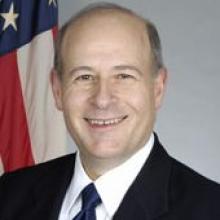 The evolution of marine technology is characterized by a balance of "requirements pull" and "capabilities push". The most obvious driver for scientific/engineering advancement is the need for enhanced performance, in terms of cost, efficiency and safety. To this end, the traditional maritime industries and applications (e.g. oil and gas exploration, commercial fishing, marine transport, etc.) have fostered improvements in a range of areas such as dynamic positioning, acoustic sensors, imaging techniques, and data management. In parallel, seemingly disparate technological communities are providing innovative opportunities for exploitation in marine applications. Examples include advanced materials, genetic probes, and compressive sensing. Coupled with developments of a "New Blue Economy", and the role of technological disruptions, we have an exciting era for defining the trajectory of marine technology, especially in the context of important areas such as national security, public health and environmental stewardship. The evolution of marine technology is characterized by a balance of "requirements pull" and "capabilities push". The most obvious driver for scientific/engineering advancement is the need for enhanced performance, in terms of cost, efficiency and safety. To this end, the traditional maritime industries and applications (e.g. oil and gas exploration, commercial fishing, marine transport, etc.) have fostered improvements in a range of areas such as dynamic positioning, acoustic sensors, imaging techniques, and data management. In parallel, seemingly disparate technological communities are providing innovative opportunities for exploitation in marine applications. Examples include advanced materials, genetic probes, and compressive sensing. Coupled with developments of a "New Blue Economy", and the role of technological disruptions, we have an exciting era for defining the trajectory of marine technology, especially in the context of important areas such as national security, public health and environmental stewardship.Dr. Rick Spinrad is a Professor of Oceanography At Oregon State University, member of the Ocean Studies Board of the National Academies, and President of the Marine Technology Society. In 2016 he retired as Chief Scientist of the National Oceanic and Atmospheric Administration, as appointed by President Obama. Dr Spinrad was the U.S. permanent representative to the United Nations Intergovernmental Oceanographic Commission. |
Tuesday, March 16
| 10:00 AM-12:00 PM | "Transforming Water: Adopting a life affirming relationship to water," Dr. Susan Smith [Tom Hibbard], ZOOM 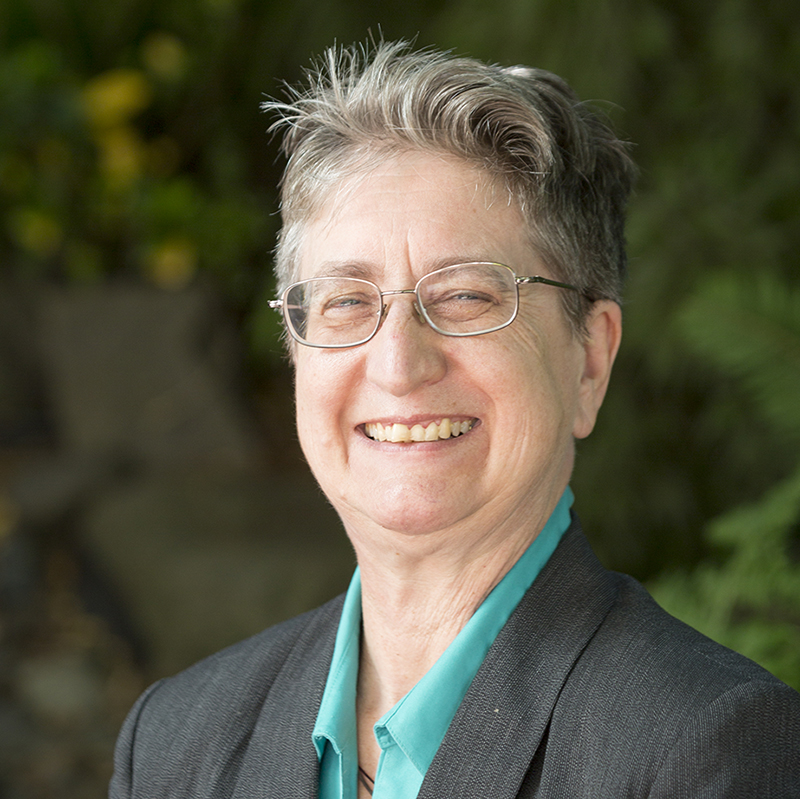 Around the globe, we utilize a paradigm called "Integrated Water Resources Management" in an often vain attempt to manage water "sustainably." The current paradigm is human-centered, utilitarian and dominated by neo-classical economic thought. We must search for a different paradigm that better describes how humanity ought to interact with this substance upon which all life depends. I propose that we embrace a life-affirming ethical relationship with water that recognizes the centrality of water to all life. Our new way of being with water must truly transform our relationship to a more humble water justice ethic to assure just and equitable use of water for the sake of all life. This research project on "Transforming Water" seeks to explain the emergence of the. current paradigm, critique that paradigm, propose a life-affirming ethical relationship with water as a substitute, and describe practical steps we can take as individuals and change agents to hasten the emergence of this different approach to water. Around the globe, we utilize a paradigm called "Integrated Water Resources Management" in an often vain attempt to manage water "sustainably." The current paradigm is human-centered, utilitarian and dominated by neo-classical economic thought. We must search for a different paradigm that better describes how humanity ought to interact with this substance upon which all life depends. I propose that we embrace a life-affirming ethical relationship with water that recognizes the centrality of water to all life. Our new way of being with water must truly transform our relationship to a more humble water justice ethic to assure just and equitable use of water for the sake of all life. This research project on "Transforming Water" seeks to explain the emergence of the. current paradigm, critique that paradigm, propose a life-affirming ethical relationship with water as a substitute, and describe practical steps we can take as individuals and change agents to hasten the emergence of this different approach to water.Professor Smith teaches environmental energy, & natural resources law at Willamette. Her scholarly research focuses on water justice ethics, governance, and law. She serves with the IUCN CEL and Academy. She serves as advisor and advocate on behalf of water justice for the World Council of Churches, Creation Justice Ministries, and the United Church of Christ. Professor Smith's litigation experience includes several decades representing environmental and community groups, EPA, DOE, DOD & other federal agencies, the State of Oregon, and mining and Oil & gas interests. She holds a BA from Reed College, Master's degree in Public Policy from the Kennedy School at Harvard University, and JD from Harvard Law School. She was approved for ordination in 2013 by the Central Pacific Conference, UCC, after 7 years of theological studies at Seattle University, Pacific School of Theology, Methodist Seminary of Ohio, and Northwest House of Theological Studies, here at Willamette. |
Tuesday, March 23
| 10:00 AM-12:00 PM | "The Great Subduction Earthquake: A Collection of Evidence from the Oregon Coast," Sheila Alfsen [Judy Gram], ZOOM 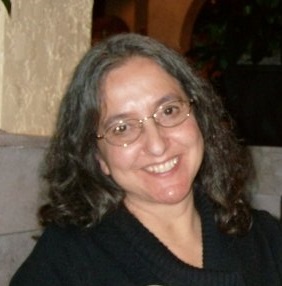 Is Oregon Earthquake Country? Are we overdue for the Big One? Will everything west of I-5 really be toast? Just what is toast anyway? It has long been thought that, although earthquakes occur frequently in California, Oregon was safe from such an event. Then clues from coastal flora gave one perceptive geologist the idea that Oregon and Washington were not as immune as we had always counted on. Geologic evidence now shows that large earthquakes happen regularly throughout the Pacific Northwest and this potential is the greatest geologic threat faced by Oregonians today. Hear how geologists came to their conclusions and sort out the truth from the hype. Learn what we can expect will happen in the next event. Is Oregon Earthquake Country? Are we overdue for the Big One? Will everything west of I-5 really be toast? Just what is toast anyway? It has long been thought that, although earthquakes occur frequently in California, Oregon was safe from such an event. Then clues from coastal flora gave one perceptive geologist the idea that Oregon and Washington were not as immune as we had always counted on. Geologic evidence now shows that large earthquakes happen regularly throughout the Pacific Northwest and this potential is the greatest geologic threat faced by Oregonians today. Hear how geologists came to their conclusions and sort out the truth from the hype. Learn what we can expect will happen in the next event.Sheila Alfsen, MAT, GIT (Oregon State Board of Geologic Examiners). Sheila leads a diverse life as a professional geologist as well as a college instructor and public speaker. A resident of Polk County and graduate if Western Oregon University, she believes that public education is a powerful resource. |
Tuesday, March 30
| 10:00 AM-12:00 PM | "Margaret Atwood's "Gospel" in the "Handmaid's Tale" and "The Testaments"- Love Gone Right and Love Gone Wrong," Colette Tennant [Dru Johnson], ZOOM 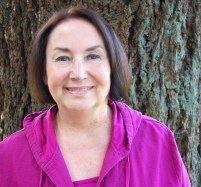 Dr. Tennant will present literary criticism of two famous Margaret Atwood's novels, "The Handmaid's Tale" and "The Testament". The "Handmaid's Tale" was quite a "shocking" novel in the 1960"s around the start of the Women's Movement. "The Testament" is the sequel and final novel of the series. The "Handmaid's Tale" was recently made into a TV special. Dr. Tennant will present literary criticism of two famous Margaret Atwood's novels, "The Handmaid's Tale" and "The Testament". The "Handmaid's Tale" was quite a "shocking" novel in the 1960"s around the start of the Women's Movement. "The Testament" is the sequel and final novel of the series. The "Handmaid's Tale" was recently made into a TV special. Colette Tennant is beginning her Twenty-fifth year as an English professor at Corban University, where she teaches creative writing and literature. Her book, "Religion in the "Handmaid's Tale: a brief guide was published in 2019 to coincide with Atwood's "The Testament". |

